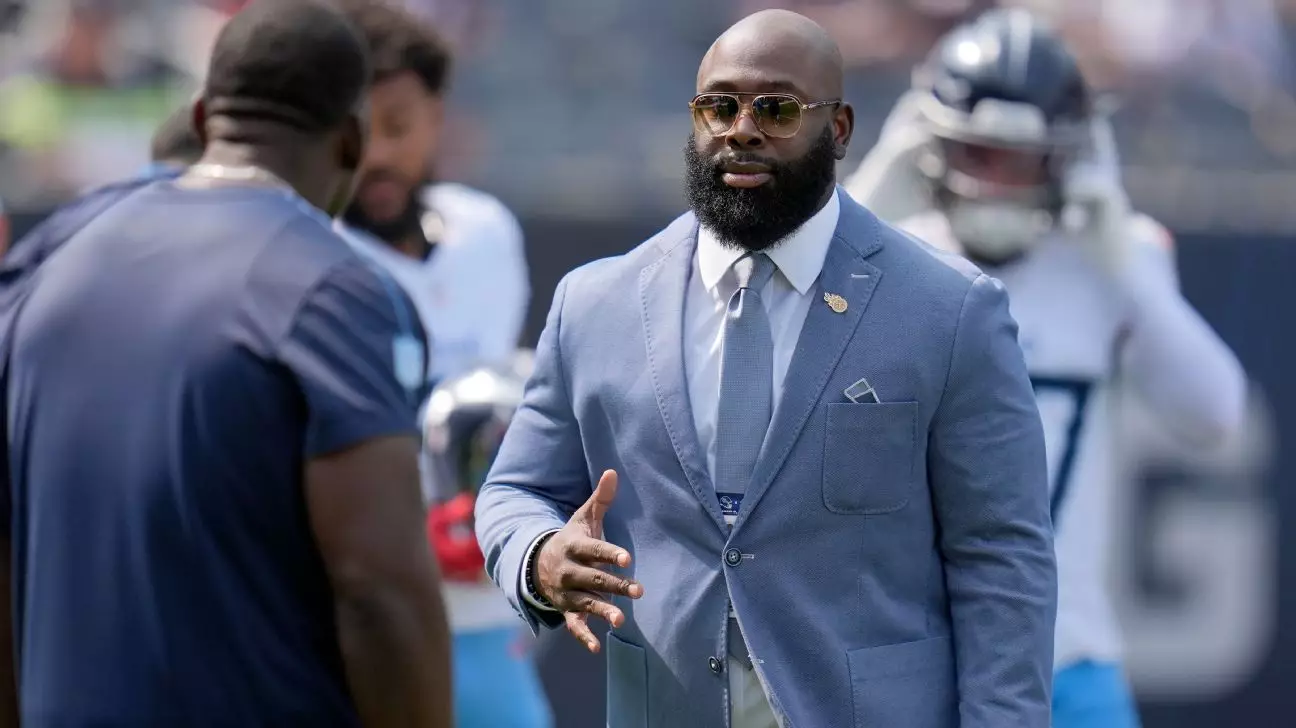In a move reflecting the disappointing trajectory of a once-promising franchise, the Tennessee Titans have terminated general manager Ran Carthon after a dismal 3-14 season. This season’s performance not only placed them at the bottom of the AFC South, but also secured them the coveted No. 1 pick in the upcoming 2025 NFL Draft. This significant change reveals a broader concern within the organization regarding its competitive stagnation over the past two years—a sentiment strongly articulated by controlling owner Amy Adams Strunk, who expressed her disappointment with the team’s lackluster win-loss record.
The Titans franchise is currently at a crossroads. Strunk’s statement underscores the urgency for a change in leadership, one that is expected to breathe new life into a culture that has struggled to compete effectively. The voters of the franchise’s future must take a critical view of past performances to build a cohesive, winning unit.
The Search for a New General Manager
With the departure of Carthon, the next steps involve not only selecting a new general manager but also redefining its role within the organization. The Titans have indicated that Brian Callahan will remain as head coach, setting a foundation for the incoming GM to work collaboratively rather than independently. This shift recognizes the importance of synergy between the coaching staff and management—a point emphasized by Chad Brinker, who has been appointed to guide the selection process for Carthon’s successor.
Brinker has outlined the qualifications desired in the next GM, placing emphasis on experience as a scout and evaluator with a proven track record in player projections. The Titans aim to recruit a candidate with roots in a consistently successful organization, someone capable of shaping an effective draft strategy. This approach indicates an acknowledgment that successful team-building requires more than just fresh faces; it demands a comprehensive strategy rooted in proven methodologies.
An intriguing aspect of the leadership restructuring lies in the balance of authority between the new GM and Brinker. While the GM will oversee daily roster decisions, Brinker retains final authority, which could serve as a double-edged sword. This arrangement raises questions about the autonomy of the new GM and how effectively they can implement their vision without the tension that can arise from overlapping responsibilities. Owners and leaders must ensure that both roles complement rather than conflict with each other.
Nihill’s comments about clarity in the organization’s hierarchy highlight an essential element for the Titans moving forward. For the franchise to escape its recent malaise, the lines of authority and responsibility need to be well-defined, ensuring that all parties are aligned with the team’s collective goals. Potential candidates for the GM role will have to navigate these dynamics carefully, balancing their expertise with the expectations set forth by ownership.
A Shift in Organizational Philosophy
The decision to sever ties with Carthon comes in the wake of a philosophy shift within the Titans organization. The original approach to the general manager’s duties no longer meets the franchise’s evolving needs. This evolution is particularly significant as the Titans look to maximize their opportunities with the first overall draft pick—a pivotal moment that could redefine the team’s future.
With Colorado coach Deion Sanders hinting at potential interest from his standout quarterback, Shedeur Sanders, following the Titans’ announcement, the stakes for the franchise’s next steps are higher than ever. The Titans must not only assess talent but also determine how new additions can integrate with the existing team culture and strategy.
As the dust settles from this leadership change, the Titans find themselves in a critical moment of potential renewal. With a new general manager soon to be in place, the groundwork must be laid not only for immediate success but for long-term viability. The franchise’s trajectory in the coming seasons hinges on the ability to make astute personnel decisions and cultivate a cohesive organizational culture.
Ultimately, the Titans must harness the pain of this challenging season as motivation to rebuild, making strategic choices that will restore their competitiveness in the NFL. Only time will tell if these decisions will lead to a resurgence for a team that has much work ahead to reclaim its place among the league’s elite.


Leave a Reply